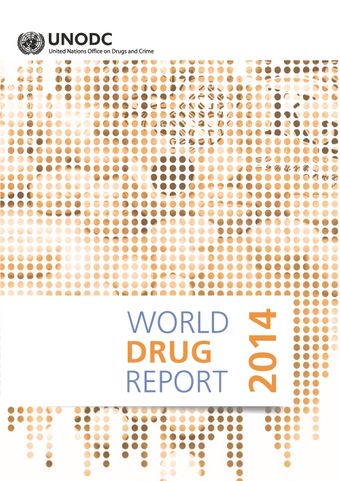- Home
- Books
- World Drug Report 2014
- Chapter
Precursor control

- Author: United Nations Office on Drugs and Crime
- Main Title: World Drug Report 2014 , pp 55-93
- Publication Date: August 2014
- DOI: https://doi.org/10.18356/4179d5db-en
- Language: English Arabic, Chinese, French, Russian, Spanish
- Previous Chapter
- Table of Contents
- Next Chapter
A number of strategies have been developed by Member States and the international community over the years to address the world drug problem in a comprehensive way, including demand reduction programmes (prevention, treatment), supply reduction interventions (drug interdiction, dismantlement of drug trafficking organizations, alternative development programmes, eradication) and efforts to control illicit financial flows. A further key intervention in supply reduction has gained importance since the adoption of the United Nations Convention against Illicit Traffic in Narcotic Drugs and Psychotropic Substances of 1988: the control of precursor chemicals, that is, the control of chemicals used to manufacture plant-based and synthetic drugs. As early as the 1990s, the Chemical Action Task Force pointed out that “the procurement of chemicals necessary to manufacture drugs is one of the few points where ... drug trafficking intersects with legitimate commerce. Regulation of legitimate commerce to deny traffickers the chemicals they need is one of our most valuable tools in the battle against drug criminals.” This has become even more relevant over time, as a growing proportion of the illicit drugs found on the market nowadays are synthetic drugs for which traditional supply-control measures applied to plant-based substances, such as alternative development or eradication, cannot be used.
© United Nations
ISBN (PDF):
9789210567527
Book DOI:
https://doi.org/10.18356/bdf42380-en
Related Subject(s):
Drugs Crime and Terrorism
Sustainable Development Goals:
-
From This Site
/content/books/9789210567527c005dcterms_title,dcterms_subject,pub_keyword-contentType:Journal -contentType:Contributor -contentType:Concept -contentType:Institution105
/content/books/9789210567527c005
dcterms_title,dcterms_subject,pub_keyword
-contentType:Journal -contentType:Contributor -contentType:Concept -contentType:Institution
10
5

